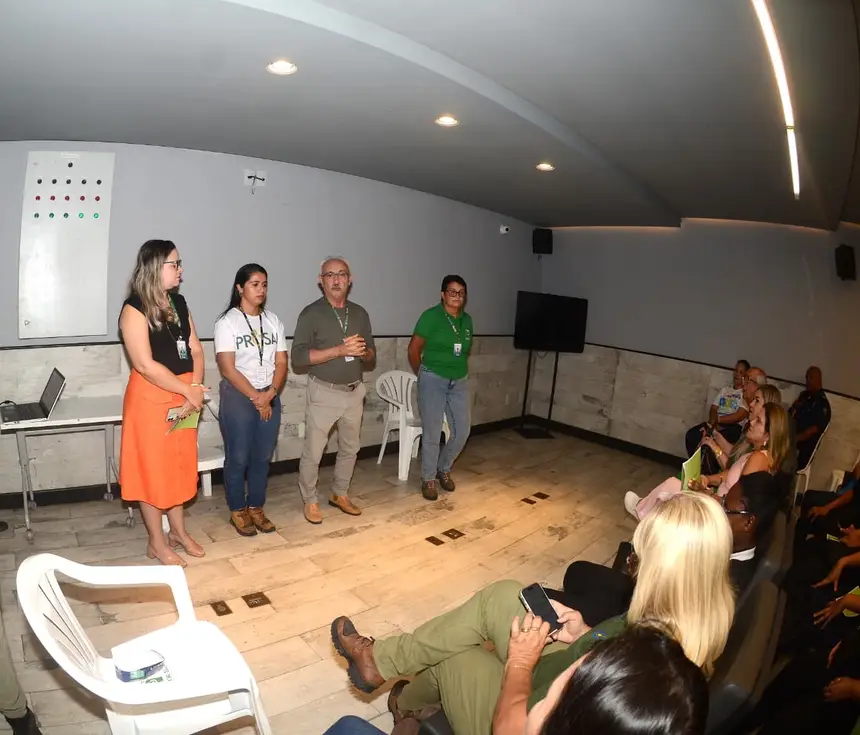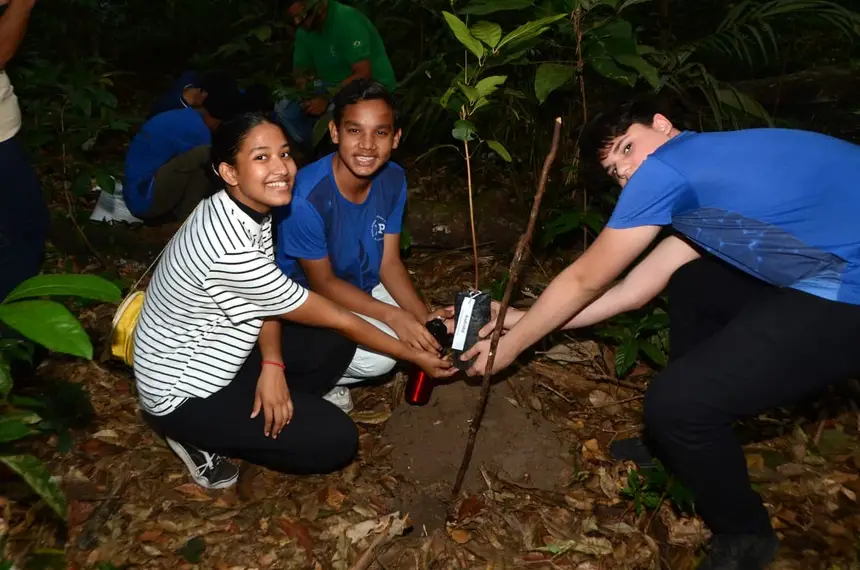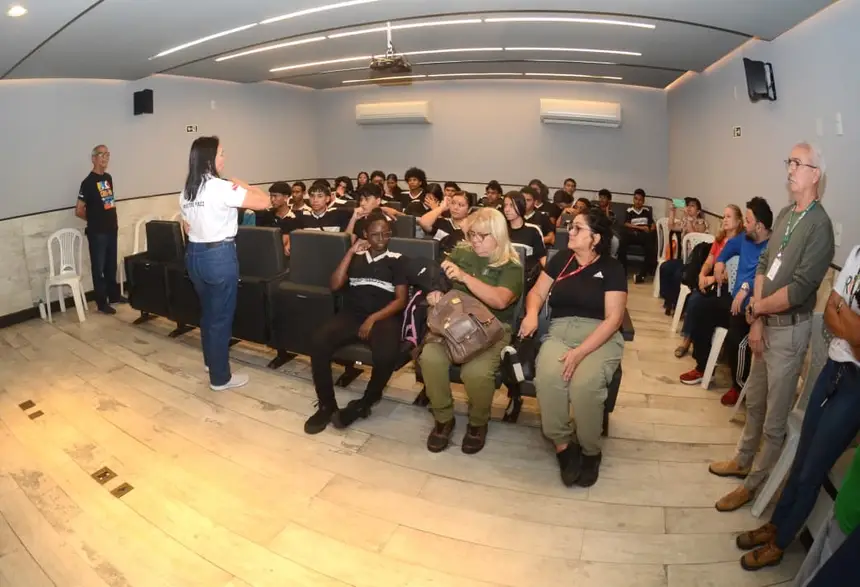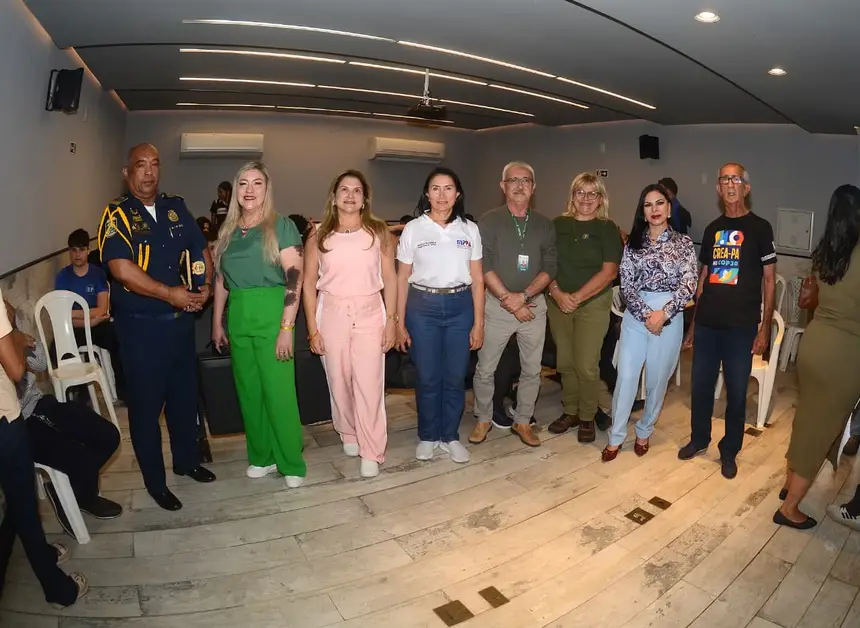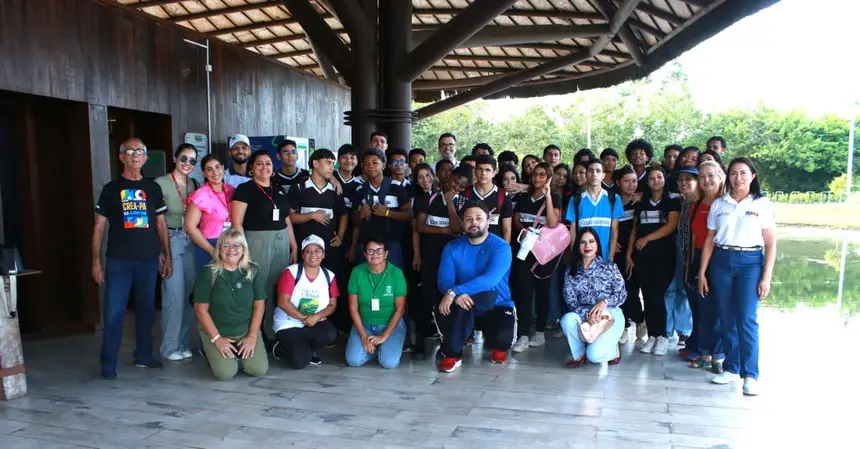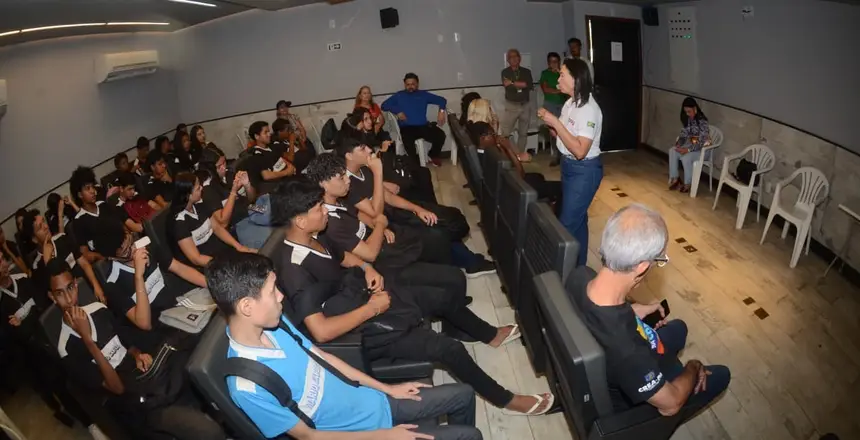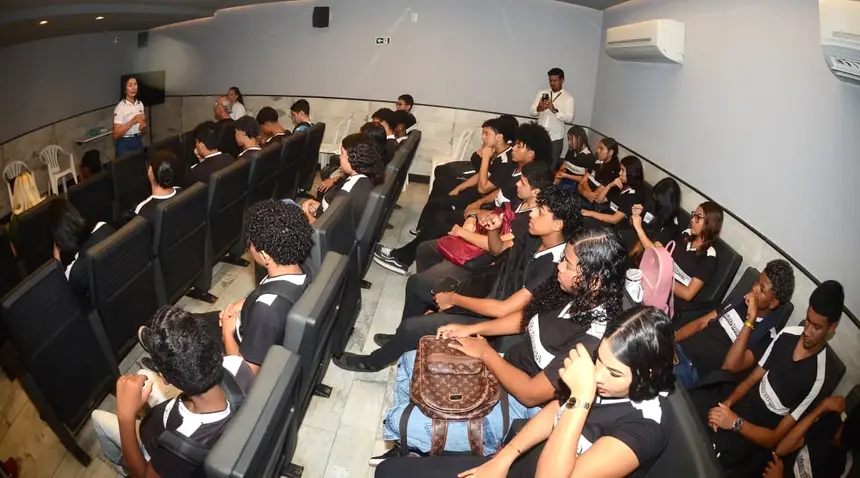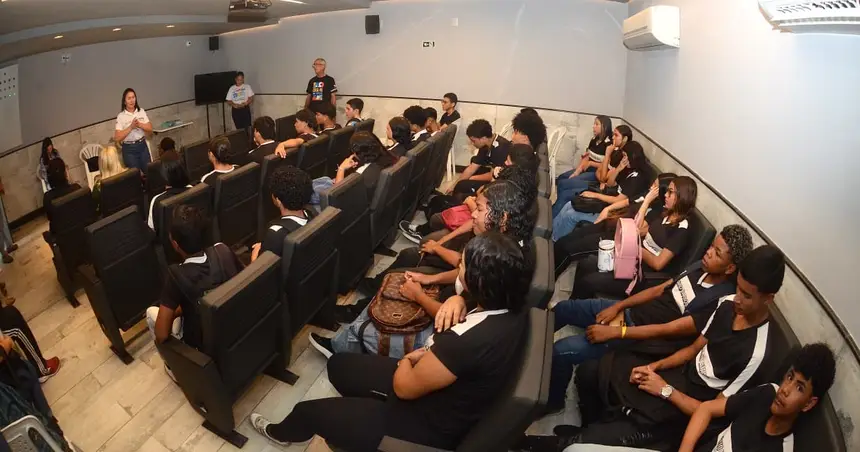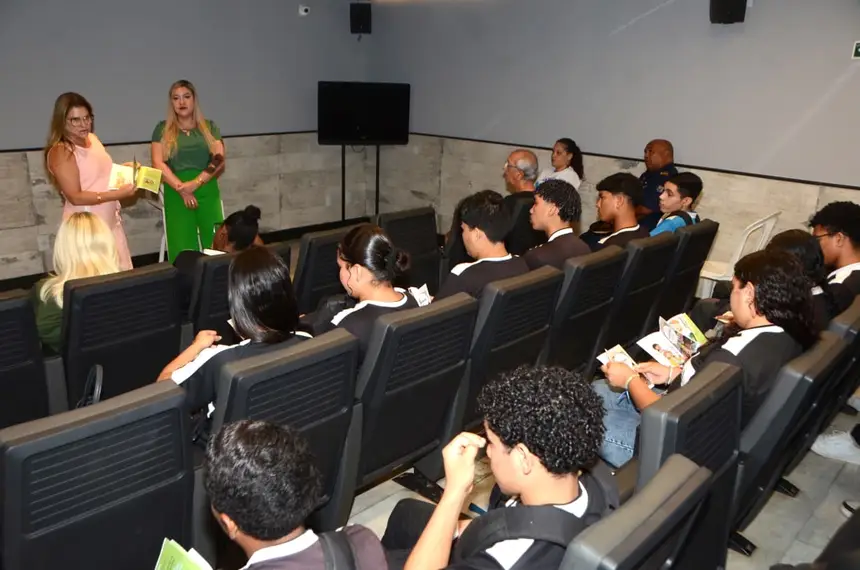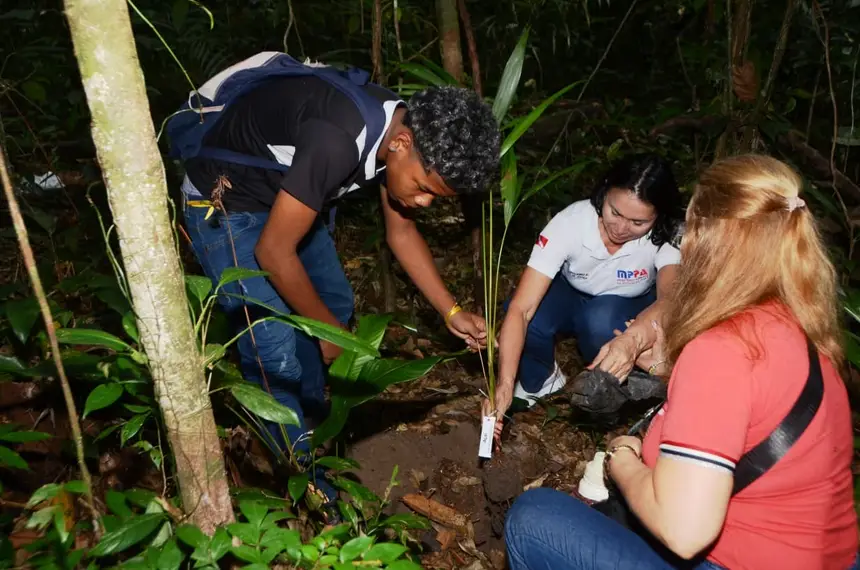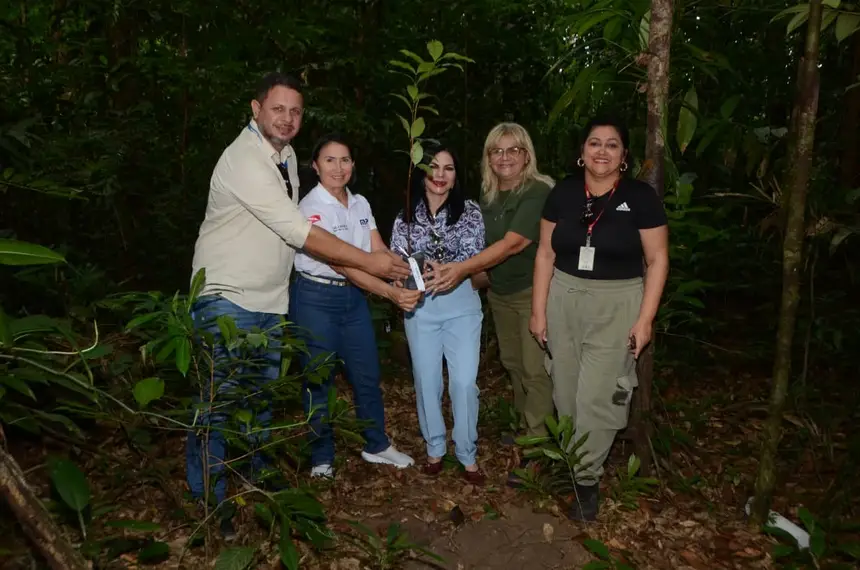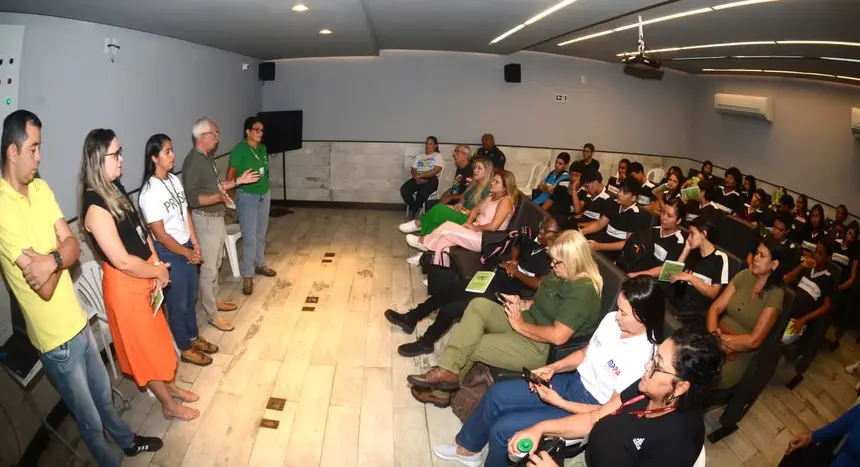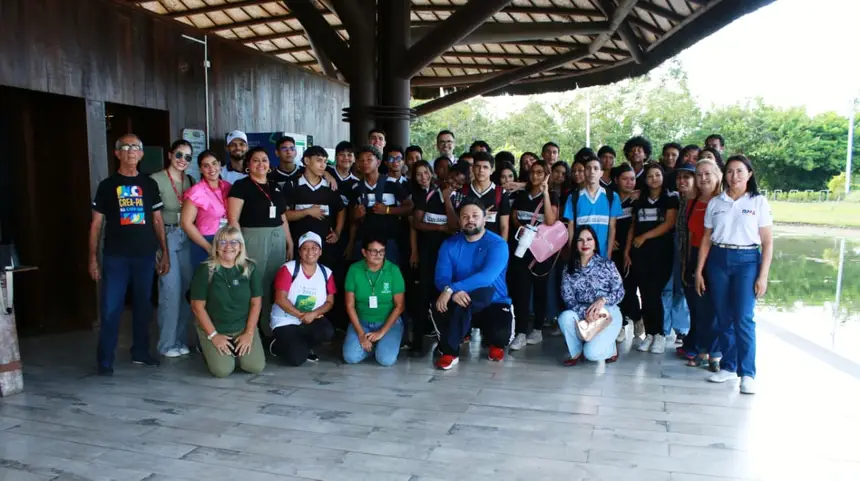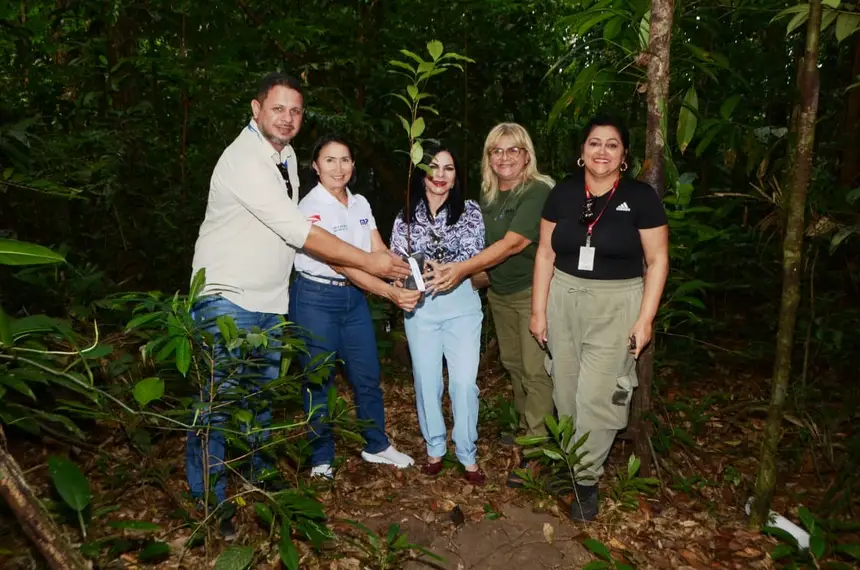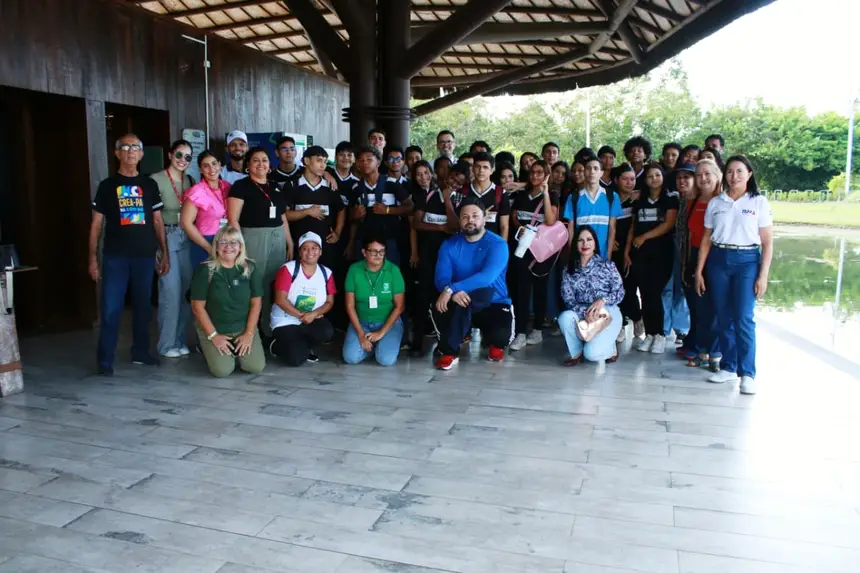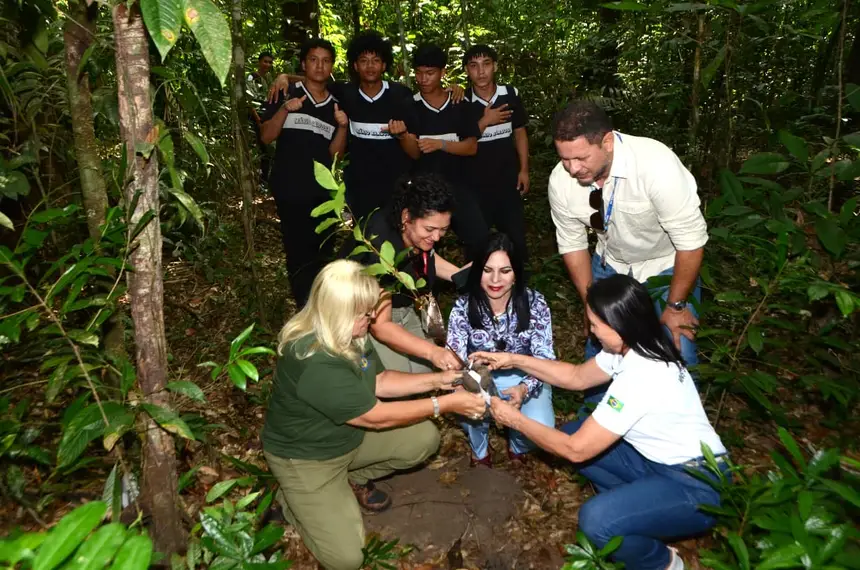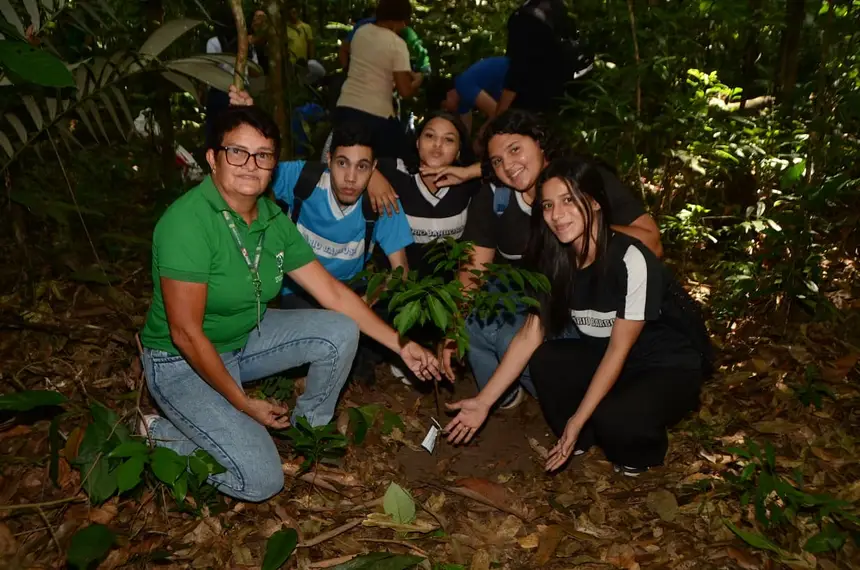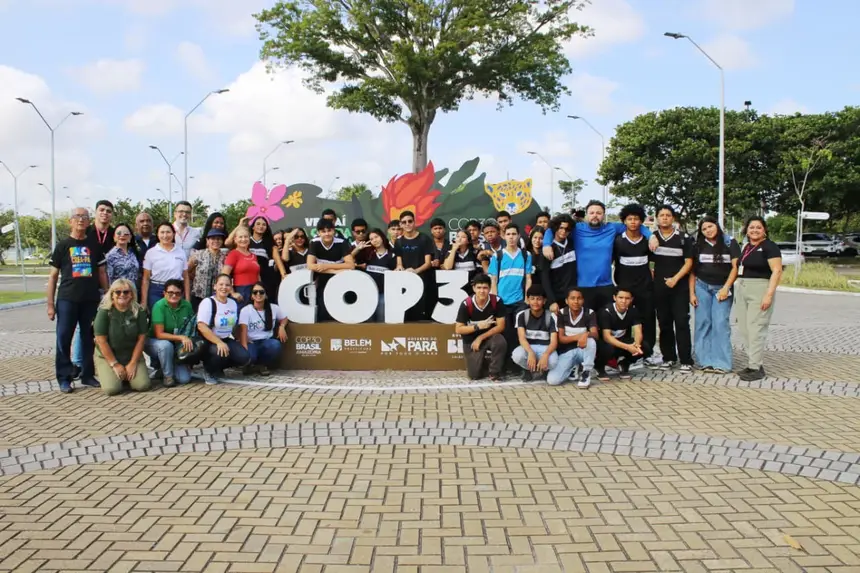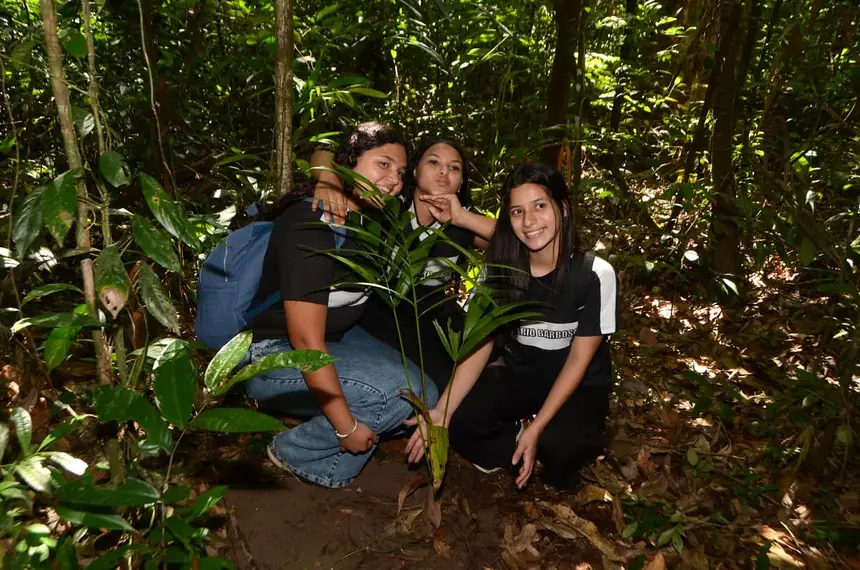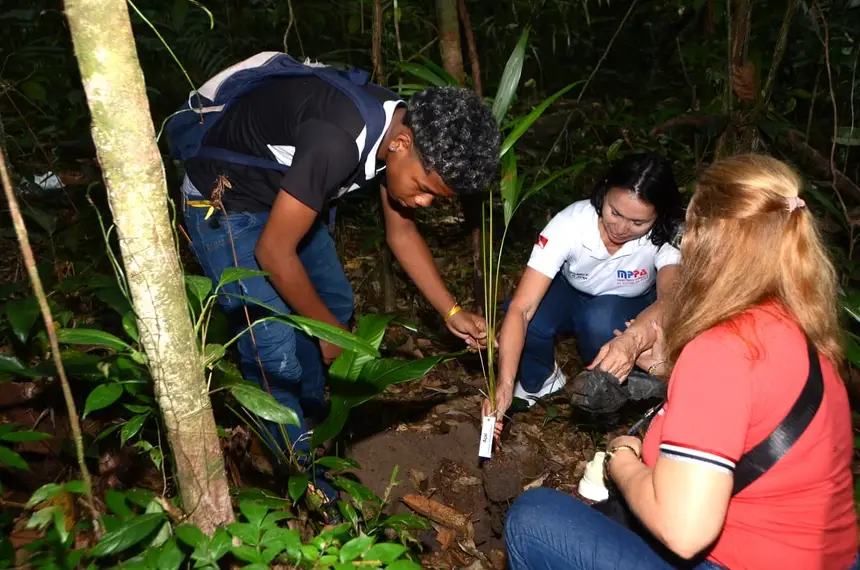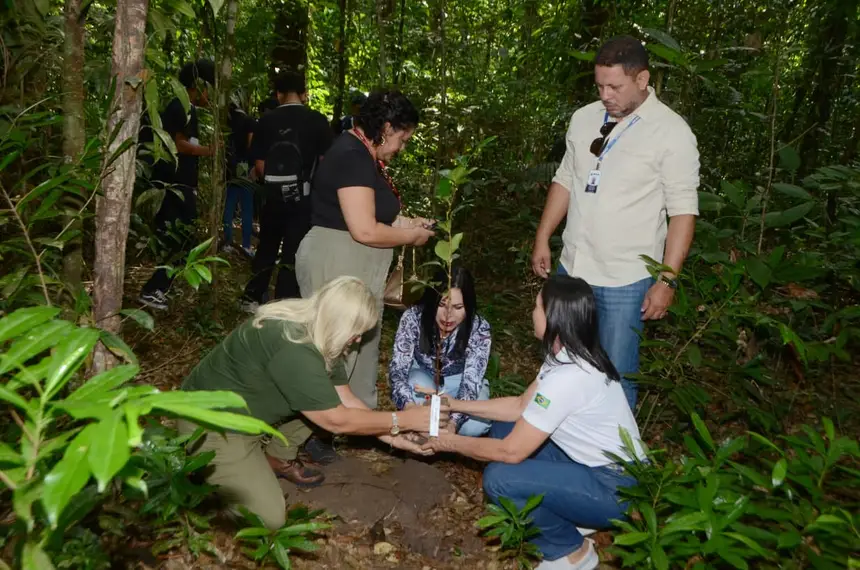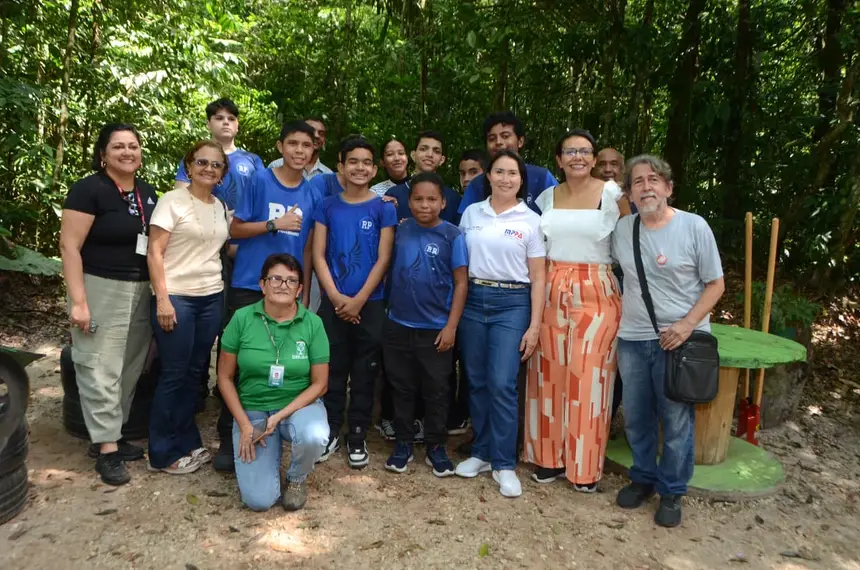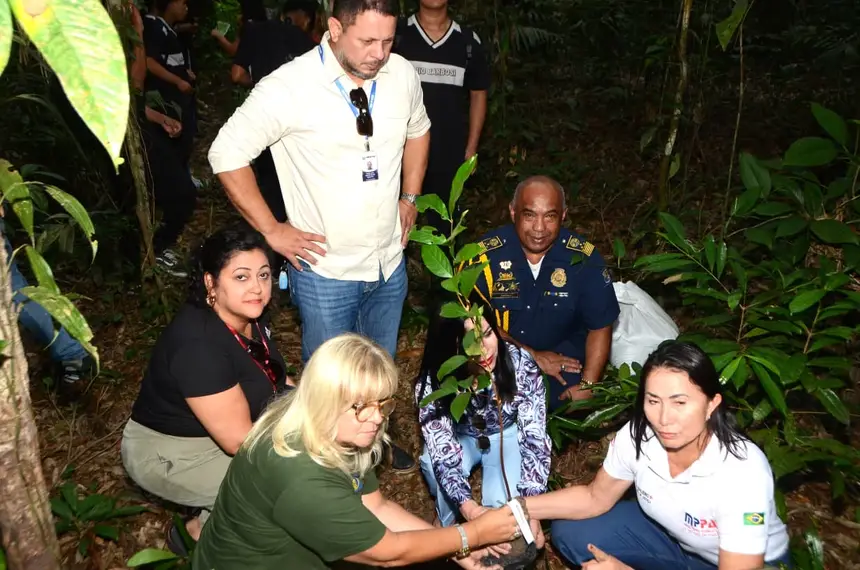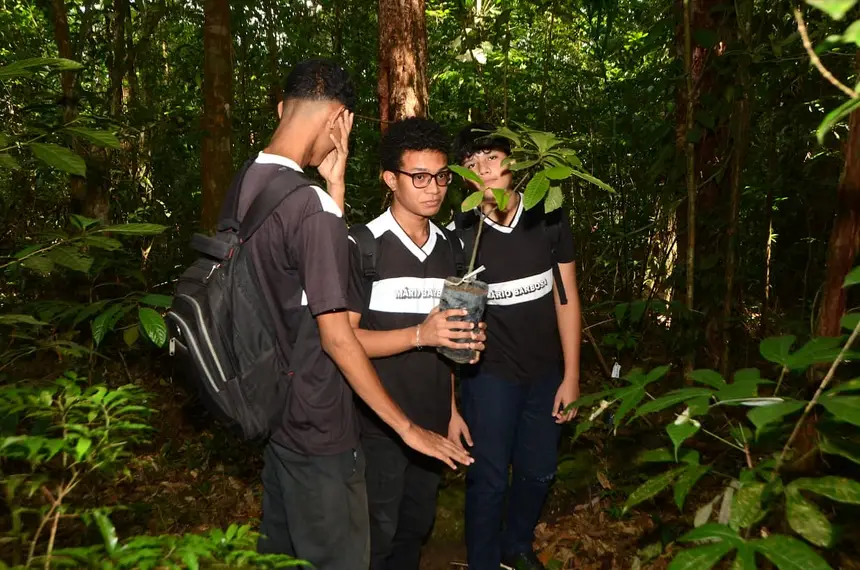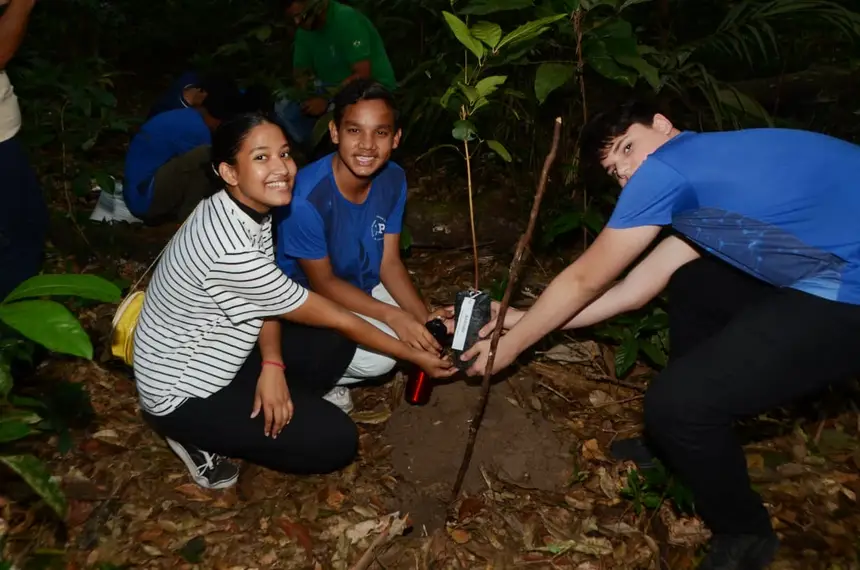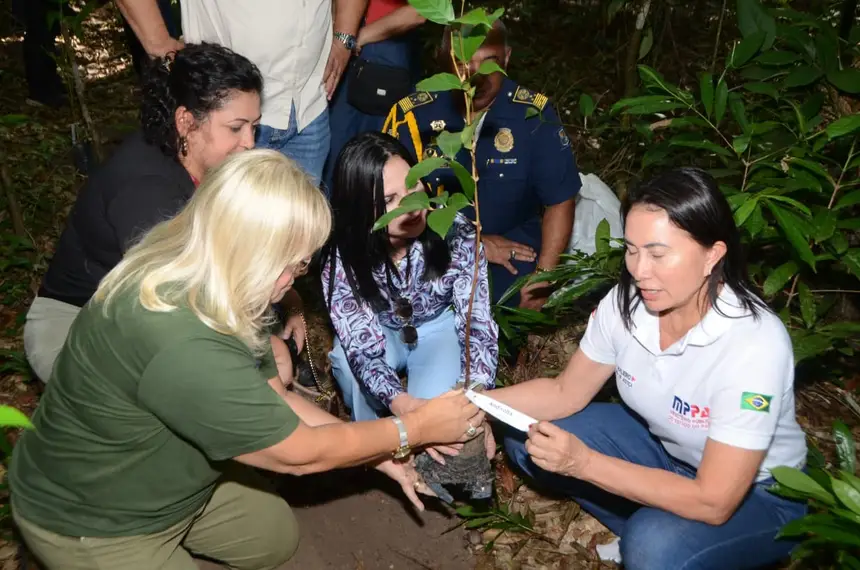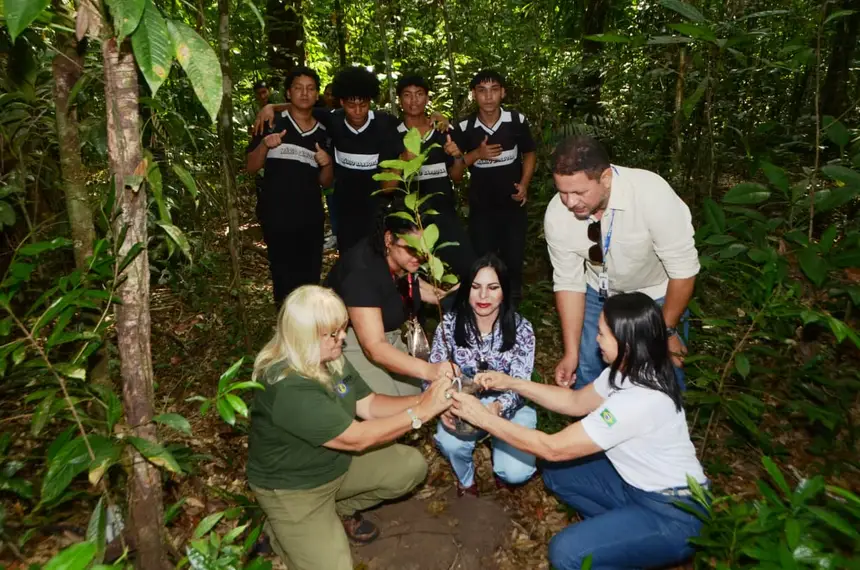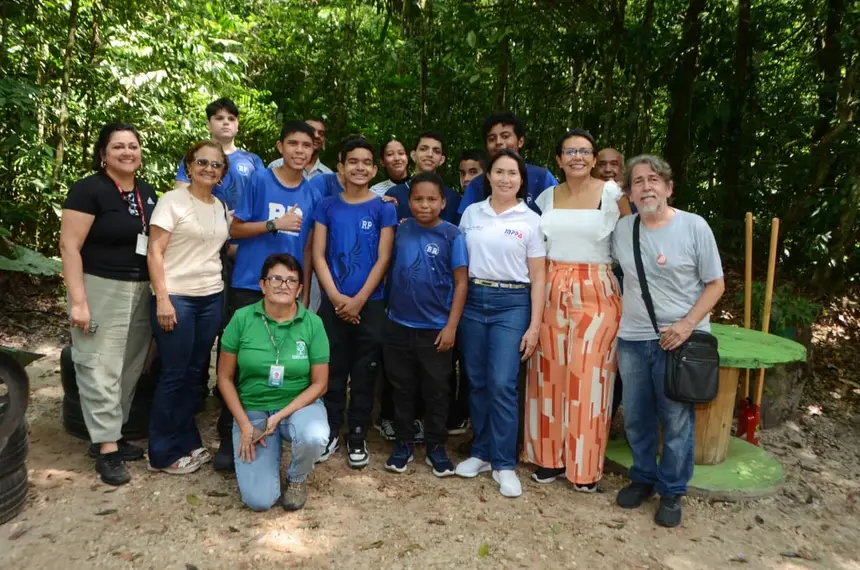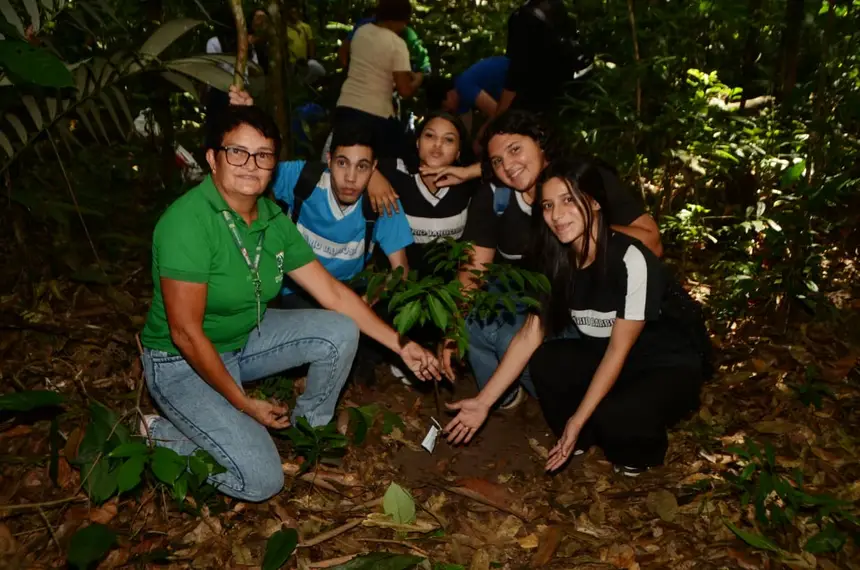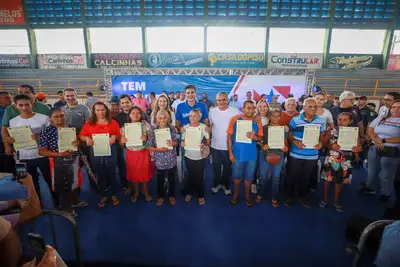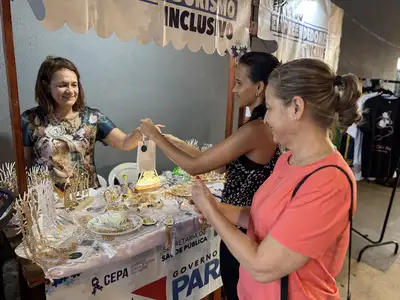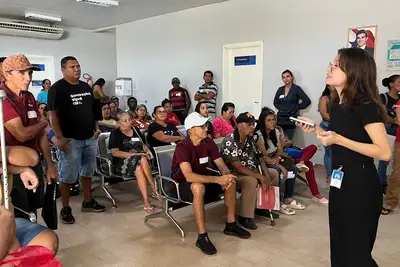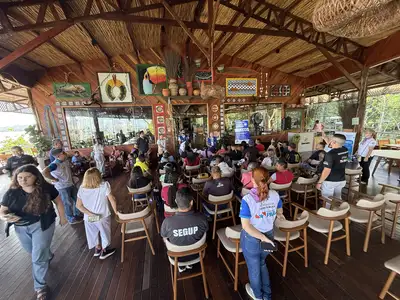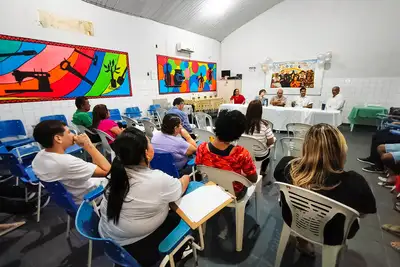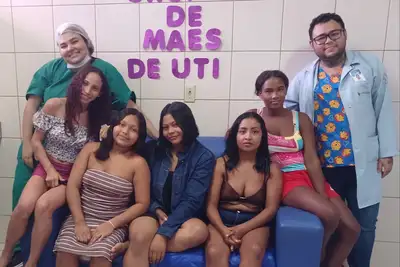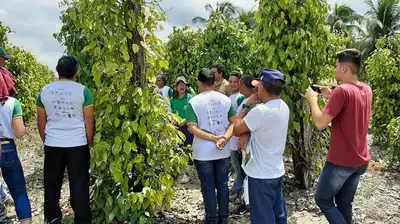Students plant native Amazonian trees at Utinga State Park
The educational action, promoted by the State Public Ministry with the support of Ideflor-Bio, reinforced the importance of environmental regeneration and youth engagement in building a sustainable future
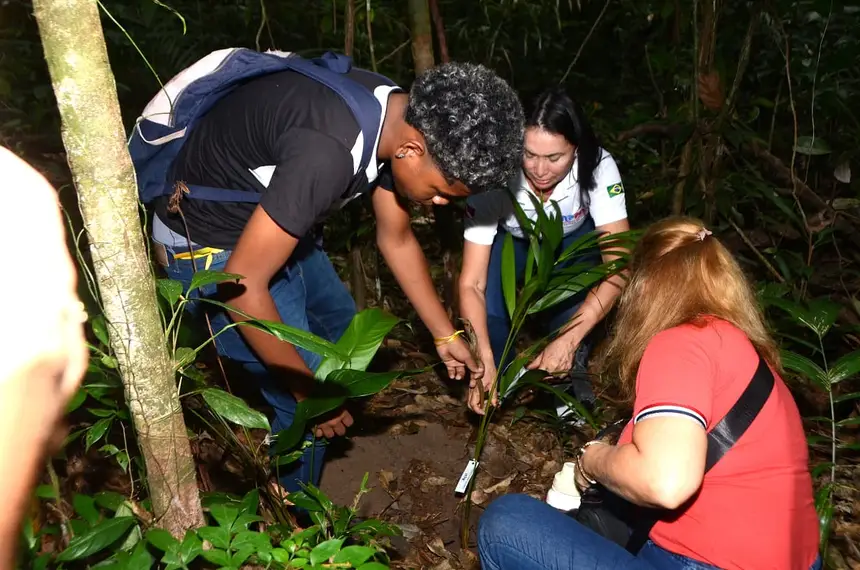
As part of the program for the event "Preparatory Dialogue for COP30: The Impacts of Pesticides in the Amazon and Climate Change", about 50 students from the state schools Rui Barbosa, in the Terra Firme neighborhood, and Ruth Passarinho, in the Marco neighborhood, in Belém, participated, this Friday (31), in the planting of seedlings of native Amazonian species at Utinga Camillo Vianna State Park. The activity took place on the Macaco Trail and was part of an initiative by the Public Ministry of the State of Pará (MPPA), with support from the Institute of Forest Development and Biodiversity (Ideflor-Bio).
The educational action reinforced the importance of environmental regeneration and youth engagement in building a sustainable future. Before the planting, teams from the Forest Chain Development Directorate (DDF) and the Belém Administrative Region Management (GRB) of Ideflor-Bio conducted a lecture for the students, highlighting the role of conservation units and the ecological value of Utinga State Park, which houses the springs responsible for supplying 70% of the Metropolitan Region of Belém.
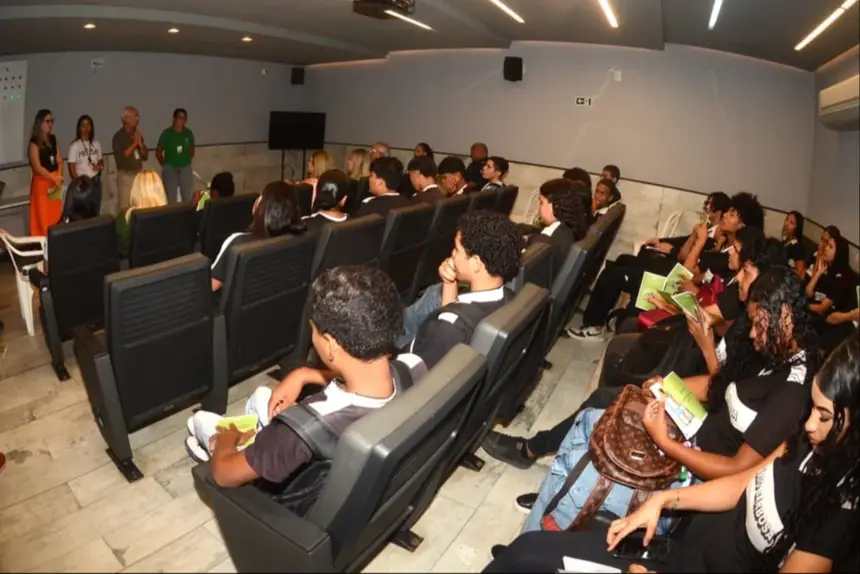
Topics such as climate change, biodiversity, and sustainable use of natural resources were discussed. “We want these young people to understand that each seedling planted represents a commitment to the planet and to life. COP30 will be a historic moment, and this action shows that Pará is ready to lead by example,” said the prosecutor and event coordinator, Ângela Maria Balieiro Queiroz.
Technical guidance - The planting was conducted by the technical team of Ideflor-Bio, which guided the students on soil preparation, spacing, and management of the species. Among the seedlings used were andiroba, Brazil nut, and açaí, all native to the Amazon rainforest.
According to Laura Dias, manager of Production and Support for Forest Productive Arrangements at Ideflor-Bio, “actions like this unite environmental education, citizenship, and science. Each tree planted is a symbol of hope and an opportunity for students to become multipliers of ecological awareness in their communities.”
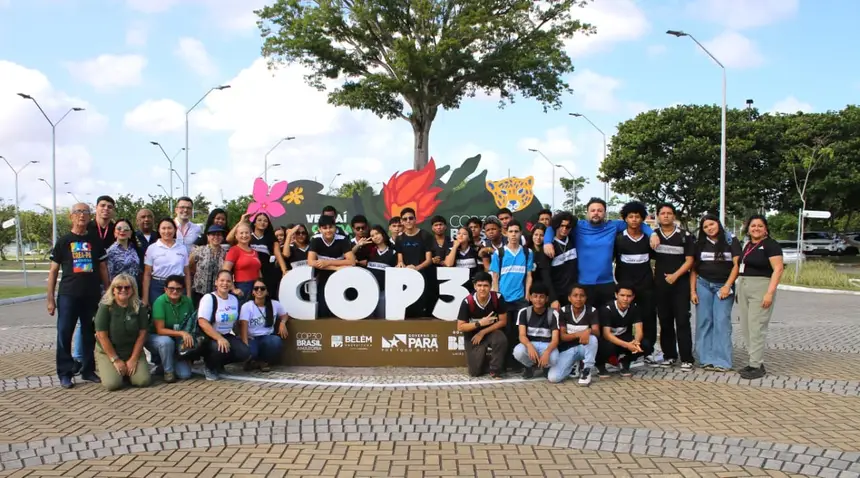
For the students, the experience was more than a practical lesson; it was a moment of connection with nature and reflection on the role of each citizen in the fight against climate change. “I had never planted a tree before. Now, I know I can help the environment, and that small actions can make a difference,” said Lucas Silva, a student at Rui Barbosa State School.
Debate and actions - The activity also featured the presence of the prosecutor and president of the Association of the Public Ministry of the State of Pará (Ampep), Ana Maria Magalhães de Carvalho, who highlighted the importance of integration between public institutions and schools in building policies aimed at sustainability. “The Public Ministry has the duty to promote debate and foster actions that encourage environmental preservation and youth leadership,” she emphasized.
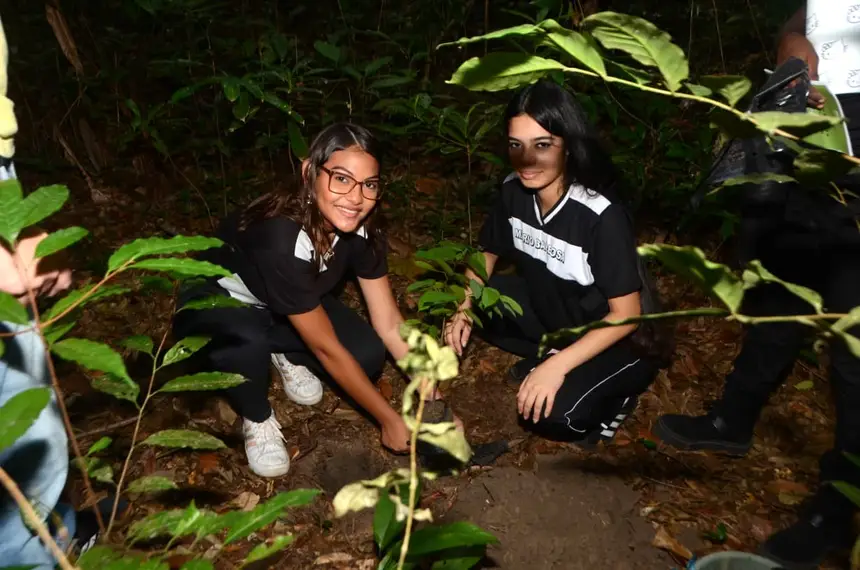
Utinga State Park, managed by Ideflor-Bio, is one of the main spaces for environmental education in Belém. In addition to being a fully protected conservation unit, the site welcomes students and researchers interested in learning more about the fauna, flora, and the importance of conserving the water resources of the Metropolitan Region, from Wednesday to Monday, from 6 am to 5 pm.


